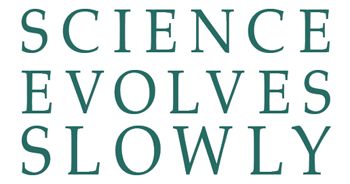SCIENCE EVOLVES SLOWLY
Some might liken science to sausage making.
You really don’t want to witness the process. Fits and starts, backtrack and redo, and painstaking (emphasis on pain) review don’t begin to describe what happens before respectable publication of results. And then, and then, somebody will publish contrary findings.
Let’s look at one snapshot of science in progress, some of the goings-on at the Congress of the European Society of Cardiology in Munich in late August that considered current research and thought on the protective effects of red wine. The Society, no doubt, will be publishing its proceedings, and the essence of our subject was reported in aim digest online’s September issue.
Francesco Sofi of the University of Florence reassured the assembly that, “You can eat well and live a long life [emphasis mine], provided what you eat is predominantly a Mediterranean diet.” Based on a study of more than two million subjects, the diet affords “significant and consistent protection . . . against the major chronic degenerative diseases and death.” Overall and cardiovascular deaths were reduced ten percent “even from a slight increase in adherence to a Mediterranean diet”, which entails high consumption of fruits and vegetables, complex carbohydrates, moderate consumption of fish, olive oil as the main source of fat, and modest consumption of red wine during meals.
But Eric Sijbrands of Erasmus University in Rotterdam reported that his group’s studies did not support the conclusions of St. Leger, et al., in 1979, which explained the “French paradox” of a low cardiac death rate among Frenchmen despite an unhealthy lifestyle, by invoking their consumption of red wine. While admitting red wine’s beneficial effects on blood fats and blood vessels, Sijbrands doubts the operant is as simple as that of a single polyphenol, such as resveratrol, derived chiefly from grape skins. The Erasmus group could not replicate studies demonstrating resveratrol’s salubrious effects. [Other researchers, however, have done so, in both epidemiologic and laboratory settings.]
Some at the Congress agreed that resveratrol has been shown convincingly to improve the health of blood vessels, cardiac function, energy production, and survival, yet others remain doubtful it is operative in life, because its concentration is so low in wine. Del Rio, et al., reviewed the absorption, effects, and fate of dietary polyphenols, also emphasizing the complexity of the subject and the pitfalls of much of reported research. They pointed out that, considering the content of resveratrol in wine and its absorption rate, more than 6O liters per day of red wine would have to be consumed to provide the desired health benefits. [Other studies suggest a more manageable dose.]
Several reports at the Congress on the effects of red wine and of dealcoholized red wine (to distinguish the contributions of alcohol and of the polyphenols) on blood vessels yielded conflicting results. [More inconclusions.] Also less than clear from the results reported was how much it is the alcohol versus the polyphenols that raises high-density lipoprotein cholesterol (the “good”, i.e., healthful, cholesterol) and lowers low-density lipoprotein cholesterol (the “bad”, i.e., unhealthy, cholesterol). [Most of us believe that alcohol plays the major role here.] Studies using red and white wines, dealcoholized red wine, and alcohol indicate that it is alcohol that exerts the main beneficial effects on blood platelets, reducing their tendency to clot inappropriately. [Such clots cause heart attacks, strokes, and other disasters.]
A research group from Barcelona University, reviewing the issues, concluded that, “Sufficient evidence supports a significant inverse association between regular and moderate wine consumption and vascular risk, particularly red wine, and a similar relationship is reported for beer consumption, while lower protection is described for the consumption of any spirituous beverage” [emphasis mine]. They believe it is mainly red wine that may protect against cardiovascular disease, including atherosclerosis and hypertension, cancer, type 2 diabetes, disorders of the nervous system, and metabolic ills associated with obesity, and that certain polyphenols, found primarily in red wine, provide much of these health benefits, in part by means of their anti-inflammatory and antioxidant properties. The benefits are thought to be dependent upon regular and moderate consumption, and are additive to those of a healthy diet. [And, I add, to other healthy factors: avoidance of tobacco, appropriate weight, reasonable physical activity, controlled blood pressure and lipids.]
Clearly, more study is needed.

